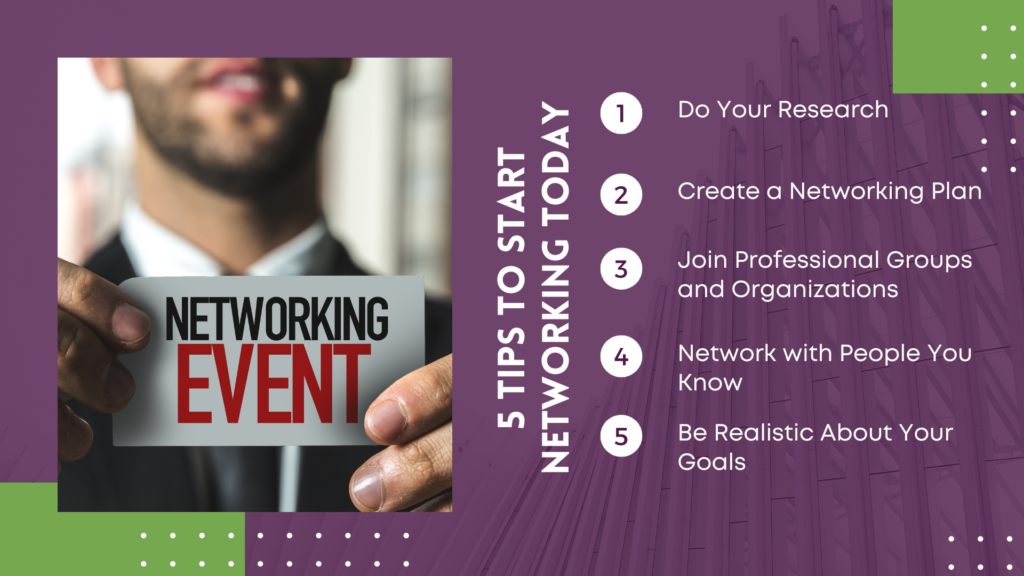You’ve been invited to a networking event and you’re unsure whether or not to attend. Or, maybe you don’t think of yourself as someone who “does” networking but would like to improve your career prospects. The good news is that it’s never too late to start building relationships with other professionals in your field! In this article, we’ll explore the many benefits of networking as well as some strategies for getting started on this rewarding path.
Networking helps people to find and build mutually beneficial relationships with other professionals in their field.
Networking is a process of building and maintaining relationships with other professionals in your field. It’s not a one-time event, but rather an ongoing commitment to connecting with people who can help you advance your career and make new contacts on behalf of your organization.
Networking is also about reciprocity: when you reach out to someone else, they will often be eager to help you as well (this can be especially true if they’ve recently been through similar challenges). If you’re looking for more information about networking strategies or would like some advice on how best to utilize them at your company’s next event, please contact us today!
Diversity is building a multi-faceted superstructure network that includes contacts who possess a wide variety of skills, interests, and backgrounds. Fill your life with network members whose help can quickly be accessed so that their assistance will be available to you when you need it.
Networking is an ongoing process that requires repeated effort.
Networking is an ongoing process that requires repeated effort. It’s not something you can do once and expect results overnight, so be patient with yourself and others as you work on building relationships.
If you don’t get the response or outcome that you want right away, don’t give up! Keep trying until it happens–and if it doesn’t happen yet (or ever), think about what else could help with your goal instead of giving up altogether.
Connections are key to networking.
Connections can lead to opportunities, referrals, and mentorships. They can also open the door for partnerships and collaborations with other professionals in your field.
Networking can be intimidating, but there are a few things you can do to make it easier. Here are five tips to help you start networking today.
- Do Your Research
- Create a Networking Plan
- Join Professional Groups and Organizations
- Network with People You Know
- Be Realistic About Your Goals
You can build connections by attending networking events, joining clubs, volunteering, or working with professional organizations. But make sure you’re reaching out and truly connecting with people!
There are many ways to network, but the most effective way is through reaching out and truly connecting with people. You can build connections by attending networking events, joining clubs and volunteer organizations, or working with professional organizations.
You may think that your only chance to meet someone new is at an event where everyone has come together specifically for this purpose. However, there are plenty of other opportunities for you to make new friends outside of these formal settings:
- Reach out on social media! If someone posts something interesting on Facebook or LinkedIn (or even Twitter), comment on their post and ask them questions about their work experience or interests–this way you’ll know more about what they’re all about before meeting up in person later on down the line!
- Volunteer for something! Volunteering gives people a chance to get involved in their community while also helping others who could use some extra support from time to time…and as an added bonus? Volunteering often leads directly back into another opportunity because many organizations rely heavily upon volunteers during certain times throughout each year when demand exceeds supply.”
Giving is networking!
When you help others, it encourages them to do the same for others. In this way, positive action breeds positive action and mutual support leads to mutually beneficial relationships.
When you give yourself and your time to help others, it encourages them to do the same for others. In this way, positive action breeds positive action and mutual support leads to mutually beneficial relationships.
Giving is networking! When you help others, it encourages them to do the same for others. In this way, positive action breeds positive action and mutual support leads to mutually beneficial relationships.
Conclusion
Networking is not just about making connections; it’s about building relationships. That’s why it’s important to focus on the person you’re talking with and what they have to offer. You should also be willing to share information about yourself–your skills and experiences–in order for others to know how they might be able to help each other out!
Jill Lublin – (Pronounced Loob-Lynn)
Jill Lublin is an international speaker on the topics of Publicity, Networking, Kindness and Referrals. She is the author of 4 Best Selling books including Get Noticed…Get Referrals (McGraw Hill) and co-author of Guerrilla Publicity and Networking Magic. Her latest book, Profit of Kindness went #1 in four categories. Jill is a master strategist on how to position your business for more profitability and more visibility in the marketplace. She is CEO of a strategic consulting firm and has over 25 years experience working with over 100,000 people plus national and international media. Jill teaches a virtual Publicity Crash Course and consults and speaks all over the world. She has spoken on many stages with luminaries such as Tony Robbins. Jill also leads an intentional kindness community. Visit publicitycrashcourse.com/freegift and jilllublin.com





Recent Comments